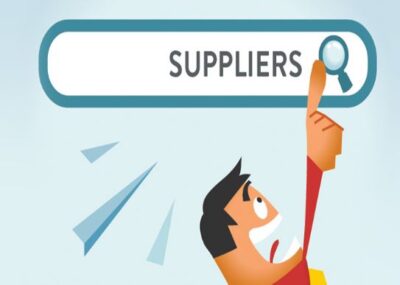Important Things to Know When Buying Kaolin Clay in Libya

Are you looking to buy kaolin clay in Libya? Well, you’re in the right place! Kaolin clay, also known as China clay, is a versatile and valuable material used in various industries.
Understanding kaolin clay is crucial whether you’re into ceramics, or industrial applications. Let’s dive into everything you need to know before making that purchase.
Properties and Uses of Kaolin Clay
Kaolin clay is highly prized for its distinctive properties: fine particle size, bright luminescence and outstanding absorption capacity are some of the hallmark features that make it popular as an industrial material – in Libya alone, you’ll find Kaolin used extensively across ceramics production, paper manufacturing and even traditional medicine! Truly an all-purpose mineral solution!
The Kaolin Clay Market in Libya
Current Market Status
Libya’s market for kaolin clay can be complex. While demand has grown significantly over recent years, local production remains limited – meaning you’re more than likely dealing with imported products if searching locally is impossible – but don’t fret, we have you covered!
Key Players and Suppliers
When purchasing kaolin clay in Libya, most purchases involve international suppliers from countries like the UK, the US and China; it’s vital to establish relationships with reliable sellers who meet both your quality and quantity needs – think of this like finding your ideal dance partner – eventually, everything should flow effortlessly!
Factors to Consider When Buying Kaolin Clay
Quality and Purity
Quality matters when purchasing kaolin clay products. Make sure that the purest form is available without contaminants that might inhibit performance, just as when purchasing diamonds.
Ideally, you want the clearest, most flawless stones available to ensure optimal performance of kaolin products.
Particle Size and Distribution
Kaolin particle sizes can make or break their effectiveness across various applications, with finer particles generally preferred for most uses; however, depending on your unique circumstances, this could vary; think of selecting the optimal grind like selecting coffee grounds; too coarse will lead to weak brew, while too fine could clog your filter and render your coffee inedible.
Colour and Brightness
White Index
The whiteness of kaolin clay is critical for paper and ceramic applications, such as applications requiring bright white fabrics such as paper or porcelain ceramic tiles.
A higher white index often signifies better quality; think of a crisp, white shirt versus one washed too many times: You want that fresh and clean appearance!
Yellowness Index
On the flip side, watch for yellowness index values; typically, lower ones indicate purer, whiter clay that might otherwise look garish on your walls if any yellow undertones spoil its effect.
Chemical Composition
Kaolin clay’s chemical makeup can significantly influence its performance across different applications. Factors like alumina content and silica levels are crucial in defining its properties – much like cooking from a recipe! It must contain just the right mix of ingredients in its composition for optimal results.
Pricing and Economic Considerations
Market Prices and Trends

Kaolin clay prices can fluctuate based on global supply and demand trends. Following market movements is key to making informed purchasing decisions; similar to trading stocks – timing can make all the difference!
Import Costs and Regulations
When buying kaolin clay in Libya, import costs and government regulations must be considered before finalizing your price. Just like planning any trip, when purchasing this clay, you must account for all associated expenses rather than only considering ticket costs alone.
Applications of Kaolin Clay in Libya
Industrial Uses
Libya’s kaolin clay has multiple industrial uses, from ceramic production to paper manufacturing filler and construction material applications. Kaolin clay’s versatility makes it a valuable commodity across different sectors.
Challenges in Sourcing Kaolin Clay in Libya
Limited Local Production
One major obstacle to purchasing kaolin clay in Libya is limited local production. Therefore, imports may present difficulties; locating tropical fruits in barren desert terrain might prove challenging!
Importation Hurdles
Importing kaolin clay into Libya requires navigating complex regulations and potential delays, making working with experienced importers who understand the local landscape vital to succeeding in your import efforts. Think of them like having an expert guide when exploring a new city – they will help avoid potential pitfalls while finding optimal routes.
Tips for Successful Kaolin Clay Procurement
Finding Reliable Suppliers

Trustworthy suppliers are essential to source high-quality kaolin clay at all times. When looking for these suppliers, look for proven track records and positive feedback from other Libya buyers; once you find one you trust, stick with them! Just like with mechanics, when you find someone reliable, you want them on board for life!
If you need kaolin clay in large amounts, look no further than Shreeramkaolin. We are a leading exporter of high-quality kaolin clay from Libya, supplying large orders to customers worldwide.
At Shreeramkaolin, quality is our top priority. Our kaolin clay meets the highest standards for industrial and commercial uses. Whether you need it for ceramics, paint, plastics, or other purposes, you can count on us for a superior product.
Visit our website here to get started. You’ll find all the details about the kaolin. we offer and information on how to request a quote for your large order.
Quality Testing and Verification
Always insist upon quality testing and verification when ordering kaolin clay products. This can ensure that you’re receiving exactly the product that was paid for and meets all your specific specifications – it’s like taste-testing food before serving it to guests – you want everything to be perfect before proceeding further with your delivery schedule.
FAQs
Does Libya produce its own Kaolin Clay production facilities?
While Libya does produce some kaolin clay, most are imported from international suppliers and used locally.
What are the primary uses for Kaolin Clay in Libya?
Kaolin clay is widely utilized for ceramic and paper manufacturing processes and, more recently, cosmetic and pharmaceutical manufacturing applications in Libya.
What steps can be taken to guarantee the quality of the kaolin clay I purchased?
Always demand detailed specifications and certificates of analysis from your supplier, and be sure to conduct quality tests when receiving shipment.
What qualities should I consider when selecting a kaolin clay supplier?
Search for suppliers with excellent reputations, consistent quality products, and delivery timelines; additionally, it would be advantageous if they had experience exporting to Libya.
Are there any regulations specific to Libya for importing Kaolin clay?
Import regulations must be observed when importing kaolin clay into Libya. Working with experienced importers or customs brokers who understand its unique specifications would be the ideal approach for success.
Conclusion
Buying kaolin clay in Libya comes with unique challenges and considerations, from understanding its properties and applications, navigating import procedures and quality controls, to managing import operations with care. But with effective knowledge and an effective approach, you should be able to procure this versatile mineral for your purposes successfully – patience and diligence are your keys to success here! Happy hunting for clay!

